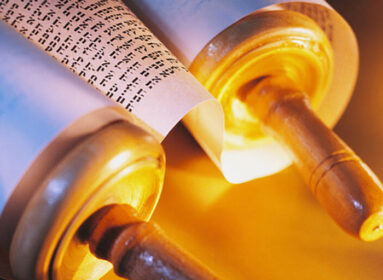A personal footnote to “Bat Mitzvah Comes of Age” (Ledger, Mar. 16, 2012)
I came to the Fairfield Jewish Community Group – known today as Congregation Beth El fresh – in Sept. 1959, straight out of the Jewish Theological Seminary.
Back then, all bat mitzvah ceremonies in the greater Bridgeport area took place on Friday night. Neither Orthodox nor Reform congregations had them. Since Congregation Rodeph Sholom was Bridgeport’s Conservative congregation; all the bat mitzvahs were there.
Since women’s equality was one of my causes — and because I did not like Friday night services anyway — I was determined to move bat mitzvahs to Shabbat morning so that our girls would be on an equal footing with the boys. How was I going to do it? It was not the norm either in Connecticut or the country. Since the Torah was not read on Friday night, Conservative congregations could finesse the reading of the Haftorah, but would not dare call a woman to the Torah on Shabbat morning. The rationale I came up with to overcome this “difficulty” would today have the National Organization for Women removing vital parts of my anatomy. Back then, it was radical! I checked around the country to find out what other “avant-garde” congregations were doing. I found out what the Halachic limitations might be. I thought that what Rabbi David Aaronson, of blessed memory, did in Minneapolis might work in Fairfield. There, the common practice was that men escorted women to the ceremony. So I suggested, as I moved the main service to Saturday morning, that each bat mitzvah be escorted to the pulpit for the maftir by her father (or, if there was no father, by me), and that the bat mitzvah recite the blessings together with her father. The young girl would then read the Haftorah by herself, since this did not have the importance of the Torah reading. The bat mitzvah would then recite Ashrei and, as the cantor led the procession for the return of the Torah, sing the appropriate psalm. In 1961, this was considered avant-garde. Yet, it did not even occur during all those years to have young teenage women read Torah with their male cohorts. There was a whole group of teenagers who read Torah during those years, but not a one of them was female.
Times have changed.
Rabbi Jack H. Bloom,
Fairfield
Rabbi Jack Bloom was the founding rabbi of Congregation Beth El in Fairfield. He is the author of several books, including “The Rabbi as Symbolic Exemplar” and the book of poems, “Blessings For You From Head to Toe.”








 Southern New England Jewish Ledger
Southern New England Jewish Ledger














